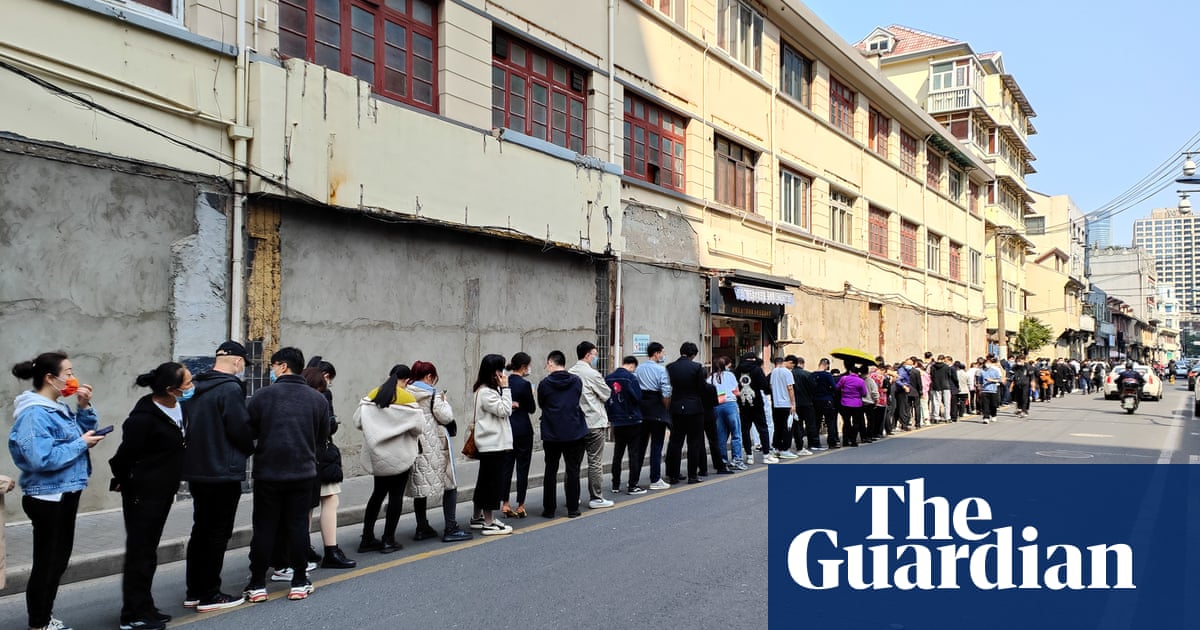XI’S ZERO COVID POLICY HURTS CHINA’S ECONOMY, ANGERS PEOPLE
China refuses to admit it, but its rigid standoff stamping out Covid-19 from the country even if it means completely locking down major cities is beginning to hurt the economy, hike inflation and strain global supply chains.
The country’s main financial center, Shanghai, which is also home to some of the world’s largest ports and airports, is under lockdown for close to a fortnight. Millions of people are locked in their homes, facing food shortages. Unrest is rising.
According to media reports, in Shanghai, “a record 21,000 new cases and a third consecutive day of Covid testing as a lockdown of its 26 million people showed no sign of easing and other Chinese cities tightened curbs – even in places with no recent infections”.
The number of cases in Shanghai is over 130,000 cases so far. “Stories of crowded and unsanitary central quarantine centres and fears of family separation have driven calls for home quarantine in Shanghai”, and for China to review its “dynamic clearance” approach.
Passenger flights to Shanghai, one of the world’s busiest airports, stand canceled. Air cargo rates between Shanghai and northern Europe are shooting up every day and the rise is 43 per cent from the level before the outbreak.
The government has refused to review its policy though some close contacts are being allowed in home isolation and authorities have stopped the widely criticised step of separating infected children from their parents.
The supply of food is affected because of shortage of couriers and hungry residents are protesting to the government, in vain. The authorities say they may allow “more delivery personnel to leave locked-down areas”.
The lockdown spree is spreading across the country. In Shizong county in China’s Yunnan province, “shops were shut, transport suspended and residents barred from leaving their towns or villages after an asymptomatic person returned home from Shanghai and infected a household member”.
It is estimated that “23 Chinese cities have implemented either full or partial lockdowns”. The cities collectively are home to an estimated 193 million people and contribute 22% of China’s GDP. These “include Changchun, a major manufacturing hub that has been locked down for 28 days”.
Zhengzhou, in central Henan province, is planning to test all 12.6 million residents after finding a few asymptomatic cases in recent days.
Millions of small businesses, like shops, kiosks and restaurants are shut, hurting domestic economics. Big factories belonging to Chinese and Taiwanese manufacturers are not producing anything. The ports are clogged with slow loading and unloading of freight. This is mightily affecting global trade.
President Xi Jinping, who is the architect of the Zero Covid programme, claims he can minimise the losses because of his virus policies but the worsening situation in Shanghai suggests things are getting out of his control as well.
People in the know in Beijing are saying there may not be any respite from the lock down till Covid cases continue to be reported. The believe that “China’s rising cases and lockdowns in Shanghai and several other cities will suppress activity across a wide range of sectors, including in-person services, travel, logistics, construction and some manufacturing”.
Nomura, a global financial services company, is quoted by the media as saying: “Since last month, full or partial lockdowns have been implemented in about 23 cities…collectively home to 193 million residents, or 13.6% of China’s population. They contribute 23 trillion yuan ($3.6 trillion) worth of GDP, making up 22% of the country’s economy.”
The continuing lockdown is beginning to affect big companies and industries which are suspending operations in Shanghai and other cities. CNN says “more than 90 Taiwanese companies have reported that their operations in Shanghai and the neighboring city of Kunshan were affected by the lockdowns, including printed circuit board manufacturer Unimicron Technology and top bike maker Giant Manufacturing, according to filings to the Taiwan Stock Exchange”.
The World Bank has warned of the growing negative impact of the lockdown policy and last week slashed China’s 2022 growth forecast, “estimating the world’s second largest economy will now grow at 5% this year, sharply down from last year’s 8.1 per cent”. The reduced figure is lower than China’s official target of 5.5 per cent. Goldman Sachs says its forecast for China’s growth in 2022 stands at 4.5 per cent.
Citi says “the Omicron wave could drag down China’s GDP growth by 1 percentage point in the first quarter”.
CNN reports that people are resorting to panic buying in hundreds of cities and towns across China fearing lockdowns. Though a majority of the virus cases in recent days were reported from Jilin province and Shanghai, “infections have been found in some 29 provinces and municipalities”.
Alfred Wu, an associate professor of the Lee Kuan Yew School of Public Policy at the National University of Singapore, told CNN: “The prospect of further lockdowns “is a reality that many Chinese face, due to the nature of the virus … (and because) the zero-Covid strategy needs to use lockdowns to handle this issue. China’s propaganda also makes a public policy change very difficult. Every time… (the leadership) says ‘we are successful, we are the only ones in the world who can actually contain the virus.’ So maybe in one month they will say this (about Shanghai), but other places will be suffering.”













